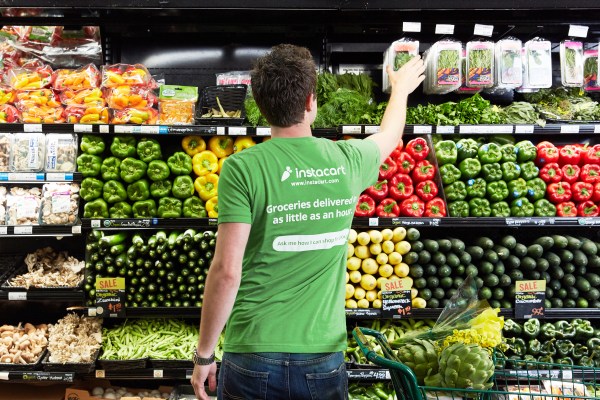Within the last two months, two groups of gig workers have effectively organized and joined unions. The first was a group of 40 San Francisco-based workers for scooter startup Spin that joined Teamsters Local 665. The second was a group of Instacart shoppers in Chicago who voted last weekend to unionize with the United Food and Commercial Workers Local 1546.
Unions, which act as an intermediary between workers and their employers, advocate on behalf of employees for better wages, working conditions and other benefits through collective bargaining. Among full-time wage and salary workers, union members had weekly earnings of $1,095, compared to $892 for non-union members in 2019, according to the U.S. Bureau of Labor Statistics.
But the right to form or join a labor union is only available to those classified as employees; because these Spin and Instacart workers were employees, rather than independent contractors, they were eligible to organize. The majority of these workers are responsible for tasks like scooter deployment and collections, operations and shift leadership.
“This is significant because this is an industry that was based on independent contractors with little to no workplace protections and now they’re becoming employees and workers are organizing,” Teamsters Joint Council 7 Political Director Doug Bloch said in a statement about Spin at the time. “It’s a model for the tech industry moving forward.”
It’s still early days for workers who joined the union, but Spin co-founder Euwyn Poon previously told TechCrunch the company is in the process of developing best practices and figuring out how to optimally work with unions.
“But ultimately, we think it’s a good thing to be having the rights of our workers represented,” Poon said. “We haven’t quite negotiated the collective bargaining yet, but that’s sort of the next step. But we do want to figure out a way to have everybody win here. Fair wages and a good environment promotes retention for our business.”
Meanwhile, there are rumblings that workers at other scooter startups are looking to form unions. In the case of Instacart, which reportedly led an anti-union campaign, only 12,000 of its in-store shoppers, who are part-time employees, are eligible to join or form unions. That leaves 130,000 full-service workers without the opportunity to form a union.
“Instacart cares deeply about all members of our community, which includes in-store shoppers who are part-time employees,” an Instacart spokesperson told TechCrunch. “We will always support employee freedom and choice, and we respect our employees’ rights to explore unionization. Pending certification of the election results, Instacart will honor the outcome of this election and the decision of these 15 part-time employees in Skokie to choose union representation. We will then begin the process of negotiating in good faith on an initial collective bargaining agreement that covers this location. While today’s election only affects in-store employees assigned to this store, we remain committed to providing the best experience for all customers and employees.”
The United States has a long history of labor unions, with the first one dating as far back as the eighteenth century. One of the oldest and most well-known unions, the American Federation of Labor, was formed in 1886. The AFL, which at its peak had 1.4 million members, negotiated for pay increases and workplace safety protections.
As of 2019, union membership comprised just 10.3% of all wage and salary workers. That came out to about 14.6 million workers in the U.S, compared to a union membership rate of 20.1% with 17.7 million union workers in 1983, according to the U.S. Bureau of Labor Statistics. Meanwhile, there are higher unionization rates among workers in protective service occupations, education, training and library occupations.
There was no data available for the tech industry, but we can point to a handful of labor unions that have cropped up over the years. In addition to the ones at Spin and Instacart, a group of Pittsburgh-based technical workers at Google joined the United Steelworkers union in September. Also last year, workers at Kickstarter joined the Office and Professional Employees International Union in the New York, New Jersey and Connecticut tri-state area. However, Kickstarter CEO Aziz Hasan refused to recognize the union and the company even fired two union organizers.
Then, just this year, the Communications Workers of America launched a campaign to organize video game and tech employees. CWA, founded by telecom workers, represents 700,000 workers in both the private and public sectors in the U.S., Canada and Puerto Rico.
“In our industries, we bring our passion and our values with us to work in hopes of building a better world; creating art and entertainment enjoyed by people around the world, and expanding access to information,” the site states. “Our work has truly massive impacts on the entire planet and society. Having a union voice better equips us in speaking up around our core values.”
For independent contractors, many of the organized actions last year centered on fair pay, transparency, benefits and the ability to form a union. That’s why many workers were big proponents of Assembly Bill 5, which now makes it harder for gig economy companies to classify workers as independent contractors. Still, lawsuits must be filed and won on behalf of gig workers in order to achieve employee status. Only then would they be eligible to form a union.
As Gig Workers Rising co-organizer Lauren Casey told TechCrunch in December, “We fully believe that all workers need to be in a union.”
